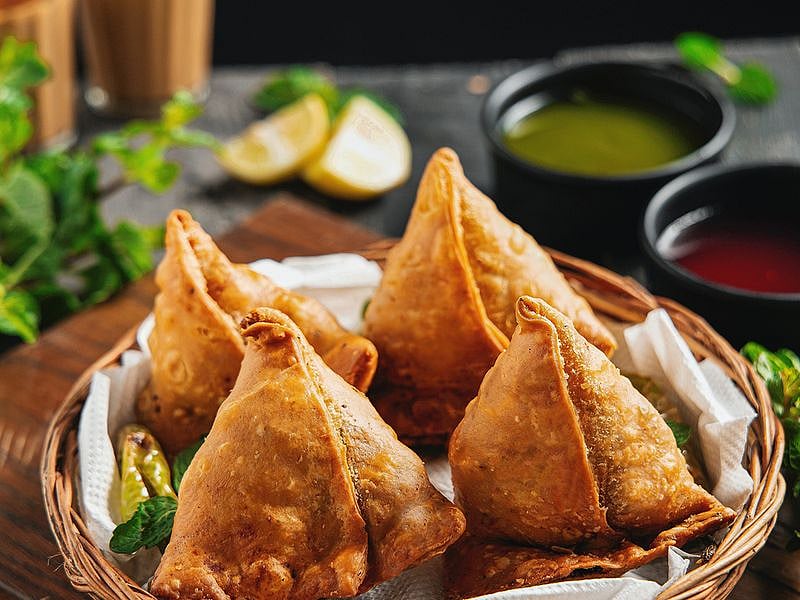Love jalebi, samosa? Why India is adding cigarette-style warnings on your favourite snacks
New guidelines: Your favourite snacks are still on the menu, but now with a health warning

Dubai: India’s beloved snacks like samosas, jalebis, and vada pavs could soon carry health warnings in public places. The Union Health Ministry has launched a new awareness drive urging all central government institutions to display boards showing the fat and sugar content in everyday snacks — similar to the warnings on cigarette packs.
What’s changing?
In a move to promote healthier eating habits, the Health Ministry has directed all central government offices, departments, and autonomous bodies to install “oil and sugar boards” in cafeterias, reception areas, and other public zones.
Like cigarette packs that carry health warnings, these boards will display the hidden fat and sugar content in everyday Indian snacks like:
Samosa
Jalebi
Vada Pav
Laddoo
Kachori
These boards will be placed in cafeterias, waiting areas, and other public spaces. Additionally, health messages related to food and obesity will now be printed on official government stationery — including letterheads and notepads — to promote daily awareness.
Why this move now?
India is grappling with a growing health crisis fueled by unhealthy diets. Currently, about 77 million people have Type 2 diabetes, and one in five urban adults is overweight. Projections warn that by 2050, nearly 450 million Indians could be obese, ranking India second globally after the US. Experts point to excessive consumption of fried and sugary snacks as key contributors to rising lifestyle diseases.
According to NFHS-5 (2019–21), over 20% of urban adults are overweight or obese, with childhood obesity also increasing due to poor diet and lack of physical activity.
The Lancet GBD 2021 forecast estimates the obese population will more than double from 180 million in 2021 to 449 million by 2050.
Looming public health crisis:
Over 77 million adults already live with Type 2 diabetes.
One in five urban adults is overweight or obese.
Childhood obesity is rising rapidly due to poor diets and sedentary lifestyles.
By 2050, nearly 450 million Indians could be overweight or obese
Health risks compared to tobacco
Medical experts are raising urgent concerns, with cardiologists comparing trans fats and refined sugars to tobacco in terms of health risks. These substances significantly increase the chances of heart disease, high blood pressure, fatty liver, and insulin resistance.
Obesity further elevates the risk of diabetes, hypertension, certain cancers, and negatively affects mental health and mobility. It also places a substantial strain on healthcare resources and the economy.
The government’s warnings aim to inform and educate the public, encouraging healthier choices without banning traditional foods. The goal is to promote awareness and moderation, not restriction.
Where does it start?
Nagpur is the first city to launch the initiative. Institutions like AIIMS Nagpur have already started placing bold warning posters in cafeterias and common spaces.
Expect to see messages like:
“One gulab jamun = 5 teaspoons of sugar.”
“Eat wisely. Your future self will thank you.”
These warnings are designed to be as impactful as anti-smoking labels — simple, striking, and impossible to ignore
Is this a ban on samosas and jalebis?
The government has clarified that this is not a ban on Indian snacks like samosas or jalebis. These foods will continue to be available, but the goal is to promote moderation and raise awareness.
By highlighting hidden fats and sugars, the initiative aims to empower citizens with the knowledge to make more informed, healthier choices — not eliminate beloved cultural dishes.
A wake-up call or unfair?
Health experts, including the Indian Council of Medical Research (ICMR), have praised the campaign. However, the move has sparked debate. Some argue it unfairly targets Indian food, while global fast food chains like pizza and burgers remain unregulated. Still, many welcome it as a timely wake-up call.
What’s next?
The initiative ties into Prime Minister Modi’s Fit India Movement and a push to reduce national oil consumption by 10%.
If successful in Nagpur, it could expand nationwide. Authorities hope the campaign will encourage healthier eating habits and reduce the burden of non-communicable diseases across the country.
With inputs from ANI, IANS
Network Links
GN StoreDownload our app
© Al Nisr Publishing LLC 2026. All rights reserved.